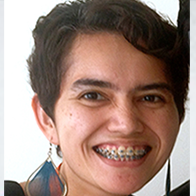Last week was filled with uncertainties and disappointment.
 Due to the smoke, schools were closed, although teachers were still told to go to work. The highly anticipated Standard Chartered KL Marathon was cancelled, causing most runners who have trained hard for the run and who raised funds for charity through the promise of running this race, to be left disappointed.
Due to the smoke, schools were closed, although teachers were still told to go to work. The highly anticipated Standard Chartered KL Marathon was cancelled, causing most runners who have trained hard for the run and who raised funds for charity through the promise of running this race, to be left disappointed.
For the running community, the race is just one day of the many long hours and dedication we devote to running.
Our love for running is fueled by the camaraderie we made through training for marathons and the competitiveness within ourselves for a personal best time, known as a PB.
We spend months, sometimes up to a year training for a particular race, conditioning our bodies to endure the challenge of running 21.1km, 42.195km or more.
When aiming for a PB, most runners would set their target on races overseas.
Many articles on sports science linked weather conditions and elevation levels on race routes to increased chances of improving runners’ PB.
Personally, I do feel that I run better in colder, milder conditions than up the hills of Bukit Tunku in smoky weather.
The smoke unfortunately, is one of those natural disasters that we have no control over, and the decision to cancel SCKLM is applauded.
However, prevention and management of such natural disasters is well within our control – through environmental awareness, science, and policies that would implement measures to solve such an issue.
To take my mind off the smoke and other deflating news in the country, I looked to social media for inspiring stories.
The story on Ashwiini Tamil Chelvan personally uplifted my spirits last week.
At just 20-year-old, Ashwinii made history when she became the first Malaysian to study at the Asian University for Women (AUW) in Bangladesh, and recently created another groundbreaking achievement for young Malaysian women by speaking at a women’s empowerment event at The Metropolitan Museum of Art alongside Unesco’s director-general Irina Bokova and philanthropist Elizabeth McCormack.
Ashwinii spoke at the forum entitled “Sabaya, Sister, Student: Overcoming Vulnerability through Education” as part of the AUW Support Foundation to discuss the power of education to empower women and combat violence against women.
On inspiring Malaysian women, the name Dr Betty Sim Kim Lee also came to mind. She famously made waves when photographed by Annie Leibovitz in a photoshoot of prominent scientists honoured by the Bill and Melinda Gates Foundation. She is now known as the Nyonya who is saving the world from malaria.
The common factor among all these great Malaysians?
They are studying and living overseas.
Coincidentally, these social media updates were shared back-to-back on my timeline with the article on our prime minister’s speech at the 5th Global Science and Innovation Advisory Council (GSIAC) held in midtown Manhattan, promising that Malaysia is on track to become a high-income nation.
Reading all these while looking out the window to a worsening haze condition that do not match the air pollutant index (API) reported by the Department of Environment (DOE) was just the biggest irony to me.
I am sure that we have Malaysian environmentalists and climate change scientists. Whether these Malaysians are residing in the country or no, they should come forward and provide their expert opinions on how to tackle the haze problem.
Further to this is the question of whether our policy-makers actually read technical reports and base policies on scientifically-backed data, and implement sustainable policies that would have a beneficial impact in the long term.
Yes, both Malaysian and Indonesian ministers for the environment were prevented from meeting in person to discuss the situation, due to the smoke.
But with the advancement of technology, surely they can have a skype teleconference instead?
I digress. Malaysians prefer to have slow Internet according to our communications’ minister.
I guess the smoke not only addled our respiratory systems, but also the clarity with which decisions are made for the country.
Given, our economists and financial experts have long been trying to get our government to better policies, even resorting to instagram to catch their attention.
However, it feels like for all our statements, petitions, and catchy-instagram selfies; everything falls unto deaf ears.
I can’t help but wonder, are Malaysians only able to do, say and act on great things overseas?
Given, using the above example of runners’ conditioning, the challenges thrown at us as Malaysians while living in Malaysia build our characters and subsequently make us more prone to achieve success on the global stage.
Yet, imagine if all Malaysians are empowered and geared for success like the many examples of extraordinary Malaysians in various fields. The prophecy of the high-income nation would indubitably come true!
The examples of Ashwinii and Dr Betty above show the immense potential of Malaysians. But would these extraordinary, successful Malaysians be able to be extraordinary if they were to reside and work in Malaysia?
That, is the question. – October 7, 2015.
* This is the personal opinion of the writer or publication and does not necessarily represent the views of The Malaysian Insider.


Comments
Please refrain from nicknames or comments of a racist, sexist, personal, vulgar or derogatory nature, or you may risk being blocked from commenting in our website. We encourage commenters to use their real names as their username. As comments are moderated, they may not appear immediately or even on the same day you posted them. We also reserve the right to delete off-topic comments